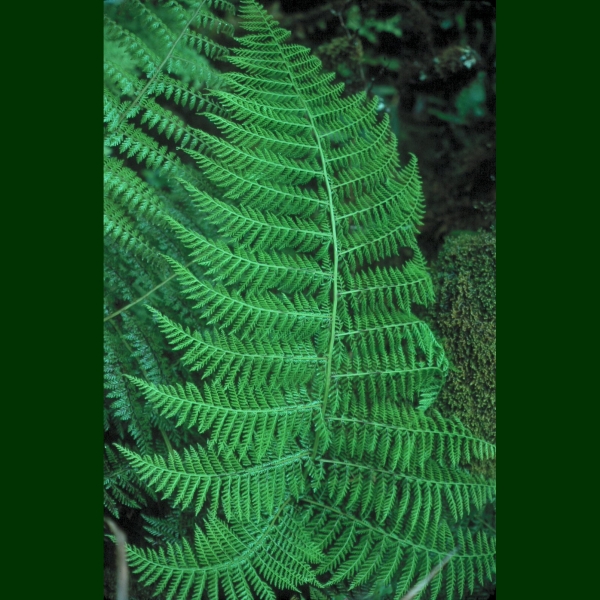 Hawaiian Name(s): ‘aākōlea
Hawaiian Name(s): ‘aākōleaScientific Name: Athyrium microphyllum
Vernacular Name: none
Family: Woodsiaceae
Status: endemic
Authority: (Sm.) Alston
Description:
Habitat Favors wet mountain environments between 610–1830 m (Valier 1995:64–65).
Medicines: Young shoots and stems mixed with shrimp, kalo leaves (taro, Colocasia esculenta), and kukui nut flesh (Aleurites moluccana), and served in poi as treatment for naoa‘ono‘ole (loss of appetite). Used in childbirth in conjunction with kikawaio (Christella cyatheoides) and kalo leaves (Chun 1994:28–29).
Non Medicinal Uses: Made into lei (see mele entry). Base of stalk cooked and eaten like hāpu‘u (Chun 1994:28).
Specific gravity of wood: unknown
Famous Locations:
Mele: Kahuli aku kahuli mai kahuli lei ula lei ‘aākōlea (see Bishop Museum Archives Mele manuscript collection of Helen Roberts, Box 4.2 p. 65a–66).
`Ōlelo Noeau:
Dye Color and Parts:
Kino lau:
Location on Bishop Museum Kalihi Campus:
Propagation Information:
